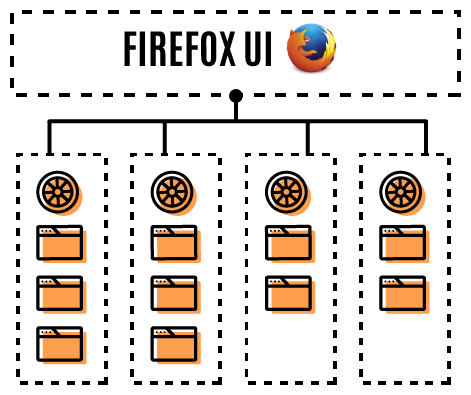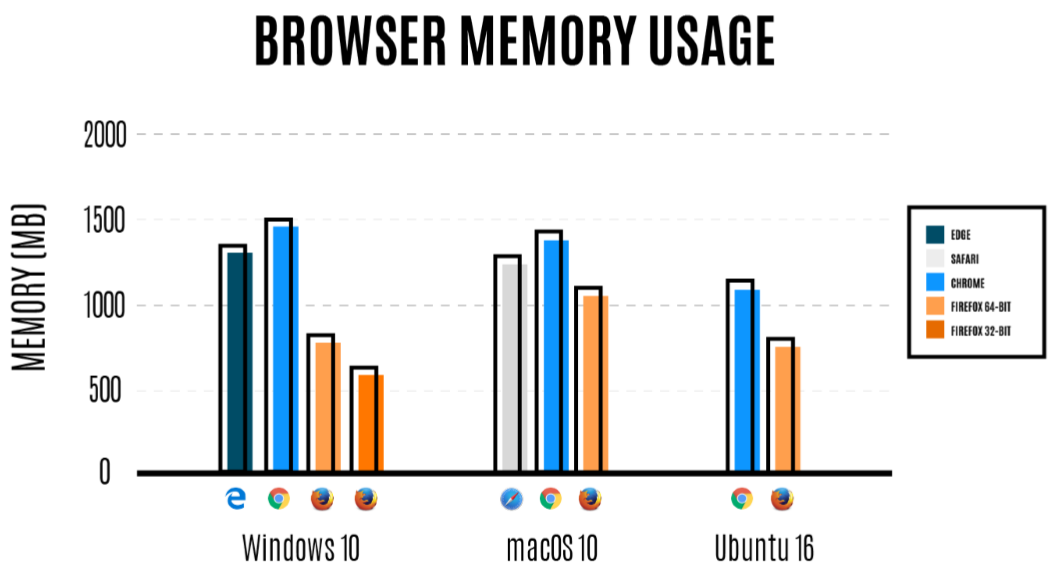Mozilla today launched Firefox 54 for Windows, Mac, Linux, and Android. The new version includes the next major phase of multi-process support, which streamlines memory use, improving responsiveness and speed.
Firefox 54 for the desktop is available for download now on Firefox.com, and all existing users should be able to upgrade to it automatically. As always, the Android version is trickling out slowly on Google Play.
Mozilla doesn’t break out the exact numbers for Firefox, though the company does say “half a billion people around the world” use the browser. In other words, it’s a major platform that web developers target — even in a world increasingly dominated by mobile apps.
Desktop
Mozilla’s multi-process support in Firefox has been in development for years as part of the Electrolysis project. In fact, work to make the frontend and add-ons support multiple processes began in early 2013, and Firefox Nightly gained multi-process support in November 2014.
June 5th: The AI Audit in NYC
Join us next week in NYC to engage with top executive leaders, delving into strategies for auditing AI models to ensure fairness, optimal performance, and ethical compliance across diverse organizations. Secure your attendance for this exclusive invite-only event.
With the release of Firefox 48, Mozilla enabled multi-process support for 1 percent of users, slowly ramping up to nearly half of the Firefox Release channel. With Firefox 49, Mozilla expanded support to include a small initial set of compatible add-ons, declaring that the goal was to have all Firefox users with multi-process sometime in the first half of 2017.

That time has now arrived with Firefox 54 — the Electrolysis project, which is the largest change to Firefox code ever, is live. Firefox now uses up to four processes to run webpage content across all open tabs (four is the default, but this can be tweaked in the browser’s settings). This means that complex webpages in one tab have a much lower impact on responsiveness and speed in other tabs, and Firefox finally makes better use of your computer’s hardware.
Update: Electrolysis still isn’t on for all users. “Roughly half of Firefox’s user population is using multiple content processes, but Mozilla will be expanding the number over the next few months based on extension compatibility, accessibility support work and other factors,” a Mozilla spokesperson told VentureBeat. To check if you’re in the Electrolysis group, type “about:support” into the URL bar and check to see if it says “1/1 (Enabled by default)” under the Multiprocess Windows line item.
As a result, Firefox also uses less memory. To show the improvement, Mozilla ran tests comparing memory usage for various browsers on Windows 10, macOS, and Linux:

Mozilla today also shared an update on its plans to build a next-generation browser engine (Project Quantum) that takes full advantage of modern hardware. The goal is to make Firefox the fastest and smoothest browser for PCs and mobile devices, and the company promised that users can expect “some big jumps in capability and performance” through the end of the year.
Here’s the full Firefox 54 changelog:
- Added Burmese (my) locale
- Added support for multiple content processes (e10s-multi)
- Simplified the download button and download status panel
- Various security fixes
- Moved the mobile bookmarks folder to the main bookmarks menu for easier access
- Additional changes for web developers
- Added ability to create and save custom devices in Responsive Design Mode
If you’re a web developer, more details are available for you here: Firefox 54 for developers.
Android
Firefox for Android didn’t get any major new features in this release, just bug fixes and improvements.
Here’s the full Firefox 54 for Android changelog:
- Add Bulgarian (bg) and Kabyle (kab) locales
- Various security fixes
- Fixed formatting for right-to-left languages, including formatting of preference names in about:config
- Improved audio and video playback in the browser
- Improved bookmarks sync performance
Mozilla releases new Firefox versions every 6 to 8 weeks, and Firefox 55 is currently slated for early August.

